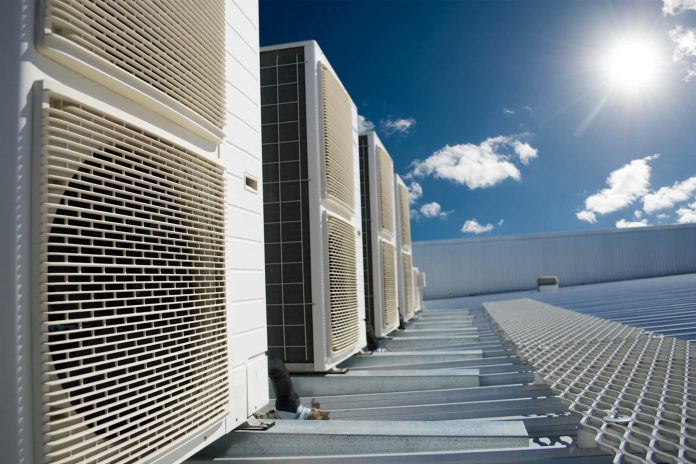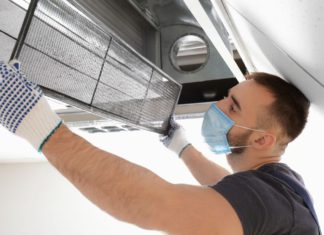Maintaining an HVAC system is crucial for ensuring its longevity and efficiency. Regular tune-ups are essential to prevent breakdowns, optimize performance, and maintain air quality within a building. You should know the critical signs that indicate a need for a professional HVAC inspection and maintenance.
Read on to learn the signs your HVAC system needs a tune-up.
Recognizing the Signs that Your HVAC Needs a Tune-Up
Recognizing when your HVAC system needs a tune-up is crucial for maintaining efficiency and prolonging its lifespan. Familiarizing yourself with the typical signs can help you address issues before they escalate into costly repairs.
Here are key indicators that suggest your HVAC system may need professional attention.
Increased Energy Bills
A notable rise in energy costs often signals that your HVAC system is not functioning at peak efficiency. This inefficiency may manifest through the system’s inability to maintain set temperatures, leading to frequent on-and-off cycles that consume more energy. Potential causes range from dirty filters obstructing airflow to malfunctioning thermostats or outdated equipment. Regular tune-ups can address these issues, helping restore efficiency and reduce energy consumption.
Unusual Noises
When your HVAC starts making unexpected noises like banging, whistling, or grinding, it’s a clear warning that some components may be failing. These sounds often originate from loose parts such as belts, bearings, or even debris interfering with internal mechanics. Ignoring these warning sounds can lead to more significant damage over time. A professional tune-up can identify and resolve these problems, securing the longevity and functionality of your system.
Inconsistent Temperatures
Experiencing varying temperatures in different rooms can indicate that your HVAC system is not distributing air uniformly. This inconsistency can be due to several factors, including blocked or leaky ductwork, a failing blower motor, or a malfunctioning thermostat. A comprehensive evaluation by an HVAC technician can pinpoint the specific issues causing these temperature disparities and apply the necessary adjustments or repairs to ensure even temperature control throughout your space.
Reduced Air Quality
Noticeable declines in air quality, such as increased dust accumulation or persistent odors when your system runs, suggest it may be time for a tune-up. These symptoms often arise from clogged air filters, congested ductwork, or a general decline in the system’s ability to filter out contaminants effectively.
Regular maintenance, including cleaning or replacing filters and inspecting ducts, can dramatically improve the air quality, making your environment healthier and more comfortable.
Short Cycling
Short cycling is a term for when your HVAC system frequently turns on and off. This inefficiency not only increases wear and tear but also raises energy costs. This issue could stem from an improperly sized system for your space, overheating components, or misconfigured thermostat settings.
By addressing short cycling early with a professional tune-up, you can help prevent more extensive problems down the line, ensuring your system operates smoothly and efficiently.
Presence of Moisture or Leaks
Moisture issues or visible leaks around your HVAC equipment are signs that should not be overlooked. These symptoms could indicate serious problems like refrigerant leaks or blocked condensate drain lines, which can severely impact system performance and pose health risks. Swift action is required to repair these leaks, which can lead to further system inefficiencies or even water damage to your property. Regular inspections can quickly catch and mitigate such issues, maintaining your system’s health and safety.
The Importance of Regular HVAC Maintenance
Regular maintenance can help extend the life of an HVAC system, improve air quality, and enhance overall comfort. During a tune-up, a professional HVAC technician will typically check the system’s refrigerant levels, inspect electrical connections, lubricate moving parts, and examine the condensate drain. Filters are replaced or cleaned to ensure the system operates efficiently and circulates clean air.
You can keep your HVAC systems in peak condition by looking for the signs mentioned above and scheduling annual or biannual tune-ups. This can prevent costly repairs and replacements and ensure the system is energy-efficient, saving money on utility bills in the long run.
However, to learn more about HVAC units and terminology, you can speak to experienced professionals or consult online resources.
When to Call a Professional
If you observe any of the indicators mentioned, such as increased energy bills, unusual noises, or inconsistent temperatures, it is crucial to consult a professional HVAC technician. Attempting to address these issues on your risks causing additional damage and poses potential safety hazards.
HVAC professionals are equipped with specialized tools, training, and expertise to diagnose and effectively repair your system accurately. Their experience allows them to quickly identify the root cause of issues and implement safe and long-lasting solutions, ensuring your system operates optimally and reliably.
Conclusion
Being proactive about HVAC maintenance is critical to ensuring your heating and cooling system’s efficiency, effectiveness, and longevity. By recognizing the early signs that your HVAC system requires a tune-up, you can save time, money, and inconvenience. Regular check-ups can help identify potential issues before they become serious, ensuring your system operates optimally year-round.















